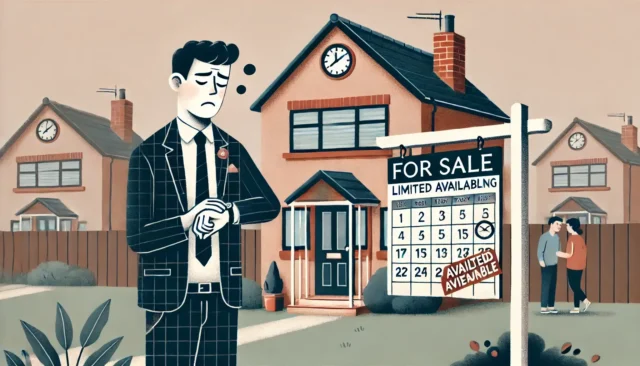At times, selling a house in Massachusetts can be stressful and complex. Other times it is a breeze.
Navigating the home-selling process requires awareness of common pitfalls. Avoiding these mistakes can ensure a smooth, profitable sale.
I will provide a detailed overview of the following information, which will help you make much better decisions:
- How overpricing your home can cost you in the long run
- Why choosing the right real estate agent is crucial
- The importance of preparing your home for a sale
- Selling at an ideal time
- The importance of preparing the house for the market
- The value of exceptional photography and listing descriptions
- Flexibility with showings
- Avoiding dual agency
- Being honest about problems
- Skipping open houses
In my thirty-eight years of experience as a Massachusetts Realtor, I have encountered numerous sellers who regret making mistakes. I have often been the second or third agent who rescued the owner from a failed home sale. These listings were either expired or canceled, and the owner finally took the time to seek out a top-producing agent.
After speaking with me, they quickly realized things would be different this time. You don’t want to be one of these home sellers, so I will explain what it takes to keep yourself out of trouble.
You’ll be better positioned to reach all your goals by following the best home-selling advice. When you do, you’ll likely avoid the common mistakes so many sellers make.
Let’s dive in!
Overpricing the Home
Few things are more vital in home sales than correct pricing. When you get the price wrong, little else you do will matter.
Overpricing your home can drive buyers away. An overpriced home often stays on the market too long, raising red flags for potential buyers.
Detailed Analysis: Overpricing can stem from an emotional attachment to the home or a misunderstanding of market conditions. Sellers often believe their property is worth more than the market dictates due to personal investment in the house.
However, buyers and agents conduct extensive research to avoid homes priced significantly above comparable properties. The longer a house stays on the market, the more it stigmatizes, leading buyers to speculate on underlying issues and further driving down interest and potential offers.
Case Study: Jane listed her home as $50,000 over the market value. After six months with no offers, she lowered the price, but by then, interest had waned. She eventually sold for less than the market rate.
Over the years, I have witnessed this scenario play out repeatedly. Knowing when you have made a mistake and fixing it by lowering the price becomes crucial.
When homes are priced right, they sell faster and for more money. It all boils down to understanding the comparative market analysis and examining the data from a buyer’s perspective. Make pricing your house a business decision. While challenging, try to take the emotions out of the process.
Selecting the Wrong Real Estate Agent
Choosing the wrong agent can derail your sale. A good agent understands the market, negotiates well, and provides valuable advice.
Having an agent with a track record of success is invaluable. Like any other business, you can choose to go with the best or take your chances. Why you would want to gamble with such a significant investment doesn’t make much sense.
Make sure you choose a Realtor and not a real estate agent. A Realtor is a member of the National Association of Realtors and has higher standards of practice, including a code of ethics.
Detailed Analysis: The right local real estate agent brings expertise, market knowledge, and negotiation skills. An inexperienced or unmotivated agent may lack these qualities, leading to mispricing, poor marketing, and inadequate negotiation.
The right agent should be proactive, communicative, and have a strong track record in your area. Interviewing multiple agents, checking references, and reviewing their marketing plans can help ensure you select the best representative for your sale. I recommend interviewing at least three real estate agents.
Example: Mark hired a friend as his agent. The friend lacked local market knowledge, leading to poor decisions and a delayed sale. Hiring friends is a common mistake that often backfires.
Selling at the Wrong Time
Timing is crucial. Selling in a slow market can mean fewer buyers and lower offers. If you have the flexibility of timing your sale, it makes sense to choose the best-selling season. In Massachusetts, the spring is best, hands down.
Detailed Analysis: Real estate markets fluctuate with seasons, economic conditions, and local trends. Spring and summer are typically peak selling seasons, with more buyers actively looking.
Conversely, buyer activity drops during winter holidays and early winter months. Massachusetts home sales are the worst in the winter months.
Economic factors like interest rates and job market health can influence buyer behavior. Monitoring these trends and consulting with your real estate agent can help you choose the optimal time to list your home.
Example: Susan decided to sell during the traditionally slow holiday season. She received minimal interest and had to lower her price significantly.
Failing to Prepare the Home for Selling
A well-prepared home attracts more buyers. Failing to clean, declutter, and make minor repairs can turn buyers away. Not taking the time to stage the house correctly is a blunder to avoid.
Detailed Analysis: First impressions matter. Buyers often make quick judgments based on a home’s appearance. A cluttered, dirty, or poorly maintained home can deter potential buyers, reducing offers or lowering bids.
Simple steps like deep cleaning, decluttering, depersonalizing, and staging can significantly enhance a home’s appeal. Additionally, addressing minor repairs like leaky faucets, chipped paint, or broken fixtures can prevent buyers from seeing the home as a fixer-upper.
Selling a property in bad condition is never wise. Selling as-is can leave tens of thousands on the table.
Case Study: Tom skipped the home preparation phase. The clutter and visible maintenance issues put potential buyers off, resulting in lowball offers.
Not Providing Exceptional Photography and Compelling Listing Descriptions
High-quality photos and engaging descriptions are essential. They create a solid first impression and attract potential buyers. They go hand in hand, like fine wine and a block of aged cheddar, or, for simpler folks, like peanut butter and jelly.
As a first-time seller, you should never underestimate the importance of quality images and carefully crafted listing descriptions.
Detailed Analysis: Most buyers start their home search online in the digital age. Listings with poor-quality photos or lackluster descriptions often get overlooked. Professional photography can highlight a home’s best features, making it stand out in a crowded market.
A compelling listing description should be detailed and highlight critical features, recent upgrades, and the neighborhood’s benefits. Using descriptive language and focusing on what makes the home unique can draw more interest.
Example: Anna’s listing had dark, poorly framed photos and a vague description. Her home received little interest until she updated the listing with professional photos and a detailed description. As long as I have been in the business, witnessing poor photography is commonplace.
Not Being Flexible with Showings
Limited showing availability can frustrate buyers and reduce interest in your home. You want to let as many people through your door as possible, and a missed showing is a missed opportunity to sell.
Detailed Analysis: Flexibility with showings increases the chances of potential buyers viewing your home. Restricting showings to specific times can exclude buyers with tight schedules.
Being open to last-minute showings and accommodating different times, including evenings and weekends, can broaden your pool of potential buyers. The more accessible your home is, the faster it can sell.
It is also wise to avoid accompanied showings. There is no reason for the listing to be there. It is not a productive exercise and, at times, can be entirely unhelpful.
Case Study: John restricted showings to weekends only. Potential buyers moved on to more accessible options, and he missed out on many opportunities.
Allowing Your Agent to Practice Dual Agency
Dual agency, where one agent represents both buyer and seller, can create conflicts of interest and compromise negotiations. If you allow dual agency, your real estate agent no longer works for you. YES – you read that correctly. They become a neutral party and are no longer allowed to give you advice by law. Doing so would be a conflict of interest.
Detailed Analysis: Dual agency can create a conflict of interest, as the agent’s loyalty is divided between both parties. This situation can lead to compromised negotiations, as the agent may prioritize closing the deal over securing the best terms for each party. In some regions, dual agency is regulated or even prohibited due to these conflicts. Sellers should seek an agent dedicated to their interests, ensuring fair representation and negotiations.
Example: Lisa allowed her agent to represent both sides. The agent’s divided loyalty resulted in a lower sale price than she could have achieved with a listing agent who did not practice dual representation. Among the many home-selling mistakes, you’ll likely feel angry when you find out your agent didn’t explain dual agency.
Not Telling the Truth About Your Home
Honesty is crucial. Hiding issues can lead to legal problems and lost trust. While Massachusetts is a Caveat Emptor state, you never want to deceive the buyer. If they ask you a question, always answer honestly.
Detailed Analysis: Transparency is essential when selling a home. If discovered later, concealing issues like structural problems, pests, or other defects can lead to legal disputes and lost trust. Disclosing known issues upfront can foster trust and prevent future complications. Buyers appreciate honesty and may be more willing to negotiate rather than discover issues during the inspection and back out of the deal.
Case Study: Mike concealed a leaky roof. The buyer discovered it during inspection, leading to a broken deal and a damaged reputation.
Thinking Open Houses Are Important
Open houses often attract curious neighbors and unqualified buyers. Private showings are usually more effective. Real Estate agents that emphasize the importance of open houses should be avoided.
They are great for an agent to prospect for business, but there are terrible risks for homeowners if they are stolen. Genuine buyers interested in purchasing will schedule a showing with an agent. Anyone who tells you otherwise is lying.
Detailed Analysis: Open houses can generate warm bodies but often attract unqualified and curious neighbors rather than serious buyers.
Private showings are more targeted and allow for personalized experiences. Serious buyers prefer scheduling private viewings to explore the home at their own pace and ask detailed questions. Focus on scheduling more private showings to attract qualified, interested buyers.
Example: Sarah relied heavily on open houses. Despite high foot traffic, she received no serious offers and wasted valuable time and effort. She didn’t realize open houses attracted the wrong people going through her home.
Colum Malcolmson of the Malcolmson Real Estate Group offers this information:
“Open houses are often seen as significant in real estate marketing because genuinely interested buyers usually prefer viewings. While open houses may pique curiosity and draw in visitors, they rarely result in sales. Serious buyers value the privacy and individualized attention they receive during scheduled showings, allowing them to explore the property and ask questions thoroughly.
Private viewings also offer buyers the convenience of viewing the home at their own pace, making the process more streamlined and focused. In essence, while open houses can boost visibility, targeted marketing strategies and private showings remain more effective in attracting buyers with interest.”
Conclusion
Avoiding common mistakes can streamline the home-selling process and maximize your profit.
- Overpricing your home can deter potential buyers.
- The right real estate agent is critical for a smooth sale.
- Proper home preparation attracts serious buyers.
Next, consider exploring strategies for marketing your home effectively to ensure a successful sale.
Understanding these pitfalls can significantly enhance your home-selling experience, leading to a successful transaction.











No Comment